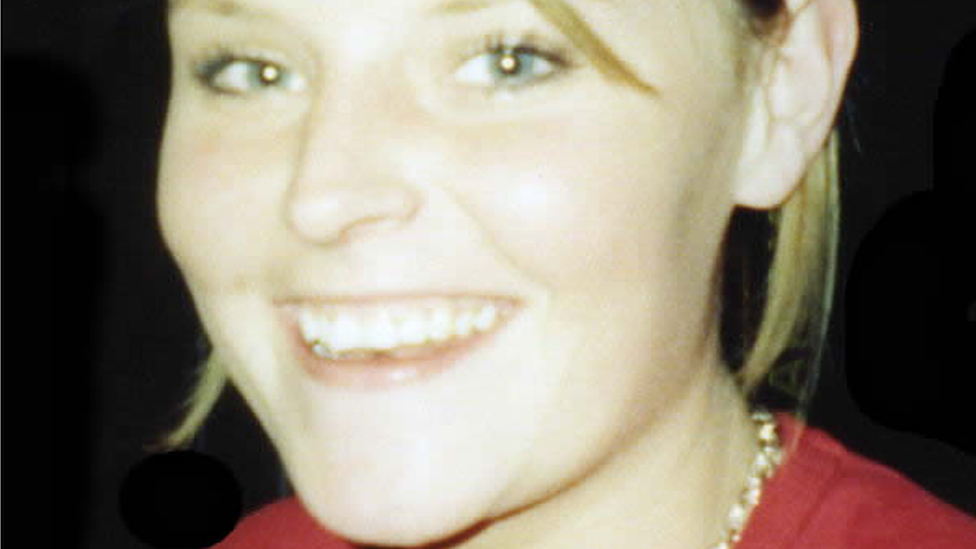Charlotte's Law: Killers who hide bodies could face longer in jail
- Published

Charlotte Murray, from Omagh, County Tyrone, was 34 when she was reported missing
A new law which would see longer time in jail for killers who refuse to disclose where they have hidden their victims' bodies will be brought forward before the next assembly election, the justice minister has said.
The legislation - dubbed Charlotte's Law after murder victim Charlotte Murray - would affect parole.
The body of the 34-year-old, who went missing in 2012, has never been found.
Her former partner Johnny Miller was convicted of her murder.
Justice Minister Naomi Long said her department had tried to work with families and find ways to encourage killers to volunteer information about where victims' remains were.
'Remember them and grieve'
She told Good Morning Ulster that under new legislation, killers would be encouraged to do this at each stage of the criminal process.
"We would try to incentivise in some way disclosing that information and at the end it would also factor in to parole commissioner's decision as to whether to grant parole," she added.
"The sooner that information comes forward, the more incentive there will be to give that information, the later it comes in the cycle the less.
"The whole purpose of this is to try to give some relief to families who do not know where their loved ones are, so they can give them a decent burial where they can remember them and grieve.
Mrs Long added that murderers would still face an automatic life sentence.

Naomi Long says she hopes to bring the legislation forward during the current assembly term
She said Charlotte's Law would mean failure to disclose the location of remains would be recognised as a "significant aggravating factor" during sentencing in terms of the minimum number of years a killer must serve before they would be eligible for parole.
Mrs Long said she intended to bring the legislation forward as part of a sentencing bill.
Charlotte Murray's family has said her killer should not be released from prison until he reveals the location of her body.
Her family has backed in their campaign to change the law by relatives of Lisa Dorrian, who disappeared in 2005, but her body has never been found.
The justice minister said department officials had continued to work with the families of Charlotte Murray and Lisa Dorrian.
In England and Wales, Helen's Law places a statutory obligation on the parole board to take into account an offender's non-disclosure of certain information when making a decision about their release from prison.
Mrs Long had previously said she proposed "to consult on the introduction of provisions similar to Helen's Law".
The legislation is dubbed Helen's Law after Helen McCourt, who disappeared in Merseyside in 1988.
Her killer Ian Simms was freed from jail without disclosing the location of her remains.
Related topics
- Published10 February 2020

- Published28 October 2019

- Published27 February 2020
